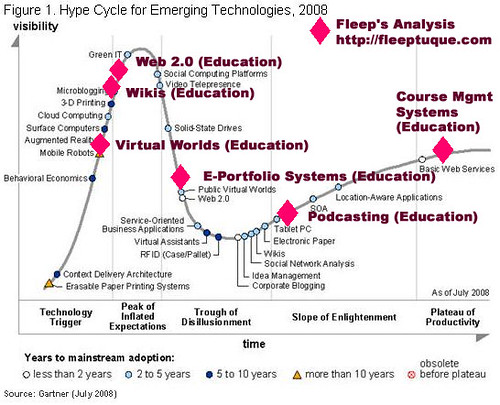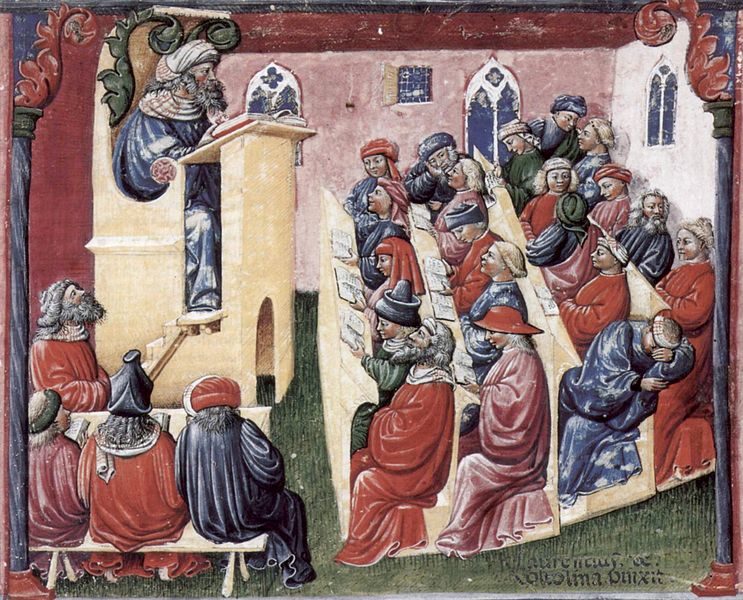Gartner Emerging Tech Hype Cycle – August 2008
Virtual World News alerted me to Gartner’s latest “Emerging Technology” Hype Cycle analysis, and I was a bit surprised to see where they placed public virtual worlds, particularly in relation to Web 2.0 and wikis.

Gartner shows wikis far out in front of Web 2.0 generally and Web 2.0 and public virtual worlds neck and neck. I don’t think I agree with that analysis if applied to an educational context. Based on my experience in the field, I’d have put Web 2.0 and wikis much closer together and before the peak of Inflated Expectations, and put virtual worlds even further behind. I’ve added some other educational technology markers for comparison (again, this is based on my own “anecdata”).

Where would you put these markers based on your experience?
RezEd Interview with James Paul Gee
If you’re involved in education and virtual worlds and haven’t yet joined RezEd, take a minute to do so now. They’re creating not only a really terrific community, but also a very rich repository of resources, information, interviews, and best practices. SLEDcc has a group that you can join, but I’ve been very impressed with the quality of their podcasts and best practices guides.

James Paul Gee - image courtesy http://rezed.org
This week they interviewed James Paul Gee, author of the seminal book What Video Games Have to Teach Us About Learning and Literacy (a must read). In the interview, he discusses how video games and virtual worlds can be used to help address some of the major deficiencies in modern educational systems – letting learners produce the lesson content instead of just “taking it in” and how virtual worlds help kids develop complex literacies through experiential and situated learning. Good stuff!
Podcast is 23 minutes long, and is worth the listen.
![Reblog this post [with Zemanta]](http://img.zemanta.com/reblog_c.png?x-id=747e33a2-bd05-4448-b789-a033ad76f097)

